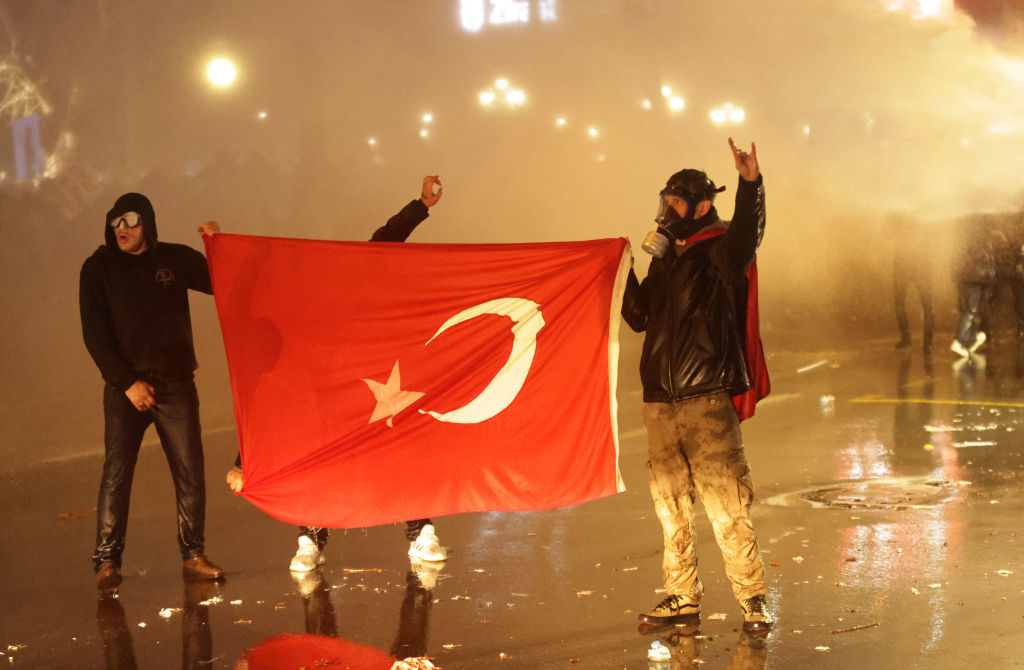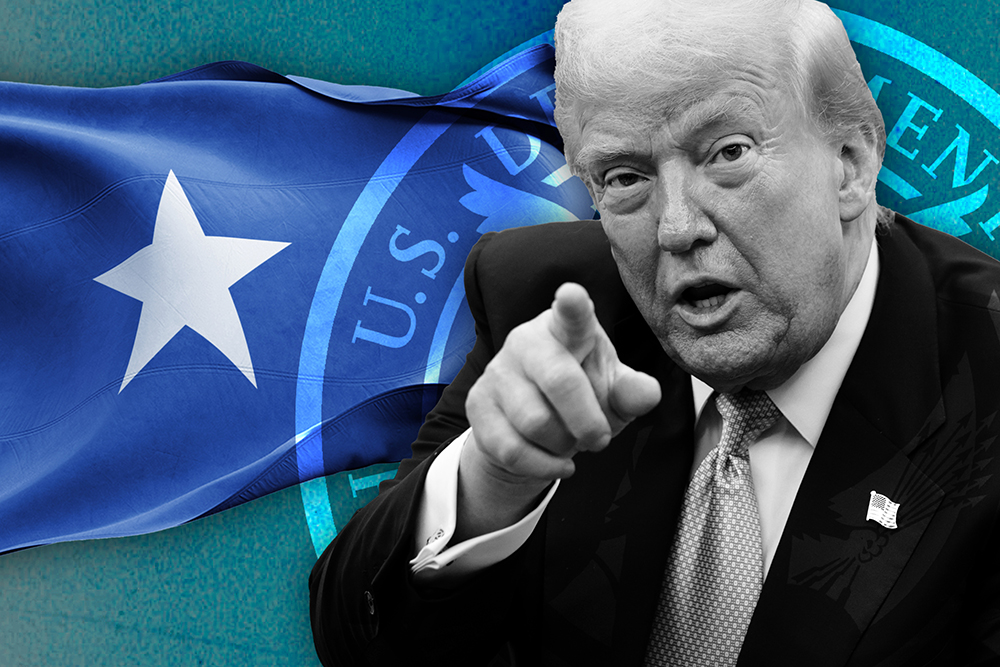Hundreds of thousands of protestors have taken to the streets of Istanbul following the arrest of Ekrem İmamoğlu, Istanbul’s mayor and the most popular opposition leader. İmamoğlu and his Republican People’s Party (CHP) claim the arrest and prosecution are politically motivated: revenge for winning three local elections in Istanbul, and a measure to prevent him from running against president Erdoğan in the next election.
Will the protests against İmamoğlu’s arrest trouble Erdoğan? The authorities are certainly worried. Governors of major cities have banned all demonstrations and gatherings in the major cities, despite the constitution stating ‘the right to hold unarmed and peaceful meetings and demonstration marches without prior permission’.
Each night, the police have employed tear gas, pepper spray, rubber bullets and water cannons. The biggest clashes appeared in Istanbul under the arches of the Valens Aqueduct, built in the 4th century. More than 1,000 people have been arrested, including journalists.
The demonstrations have attracted an unlikely crowd, well beyond the supporters of Imamoğlu’s centrist CHP. Youths with radical right-wing views stood alongside ageing men carrying flags with the hammer and sickle. Diehard secularists marched together with girls in headscarves and modest clothing. Some were showing the ‘Grey Wolf’ sign, associated with ultranationalists, while others did the pro-Kurdish victory sign or the clenched fist of the socialists. Even if unintended, these protests have united groups across ideological divides in a way that President Erdoğan’s rule has rarely seen.
Cracks, however, are starting to appear among the protesters. The CHP and their supporters are visibly uncomfortable with leading a street movement. In contrast with more radical groups, they have little practice in running from a riot police charge or inhaling tear gas.
Historically, the CHP’s political gatherings were usually limited to congregating in a big square to chant anthems and listen to speeches. Ideologically, they are statists, so shooting fireworks at the authorities appears problematic to them. Even İmamoğlu referred to the officers coming to arrest him as ‘my beloved police’. But they are also angered by the excessive police measures against protesters.
Students emerged as the natural backbone of the demonstrations, often clashing with the police, organising first aid, and mobilising online. They are mostly independent, not members of any party or political organisation. Among them, frustration with the lukewarm leadership of the CHP is rapidly growing. During speeches, some chanted slogans like ‘Coward CHP!’ or ‘We came to protest, not just to gather’.
‘The protests stopped being about Imamoğlu,’ said Ahmet, an 18-year-old university student from Istanbul. When he was born, Erdoğan had already been in power for several years. ‘The CHP is using the protests to advance their own agenda; they are mismanaging it. I’m unsure what positive effects the protests will have, but I know we have to disrupt the cogs of the system.’
The Kurds are Turkey’s second-largest ethnic group, with their population in Istanbul alone in the millions. Their support for Imamoğlu was key in winning him elections in the past. Many among them, however, feel abandoned by the CHP.
‘Where were they when our mayors were being arrested and removed from office in the south-east [of Turkey]?’ said a Kurdish woman living in the outskirts of Istanbul. ‘They didn’t come out on the streets to protest for us. They do not come to the outskirts of town when we are being arrested.’
Tensions with the Kurds worsened when the CHP mayor of Ankara referred to the Kurdish flag as ‘rags’. Besides, there are currently reports of peace negotiations between the outlawed Kurdistan Workers’ Party (PKK) and the state. Some fear that mass protests spreading to the Kurdish-majority south-east could derail these efforts to end the 40-year guerrilla war.
At this stage, it is difficult to predict how the protests will pan out. University students like Ahmet are determined to continue in what they see as a struggle for their own and their country’s future. There are calls for general strikes, boycotts and other forms of civil disobedience. But, as with other mass protests in the past, these could also slowly fade away, with people returning to their daily lives and getting used to president Erdoğan’s apparent invincibility.







Comments